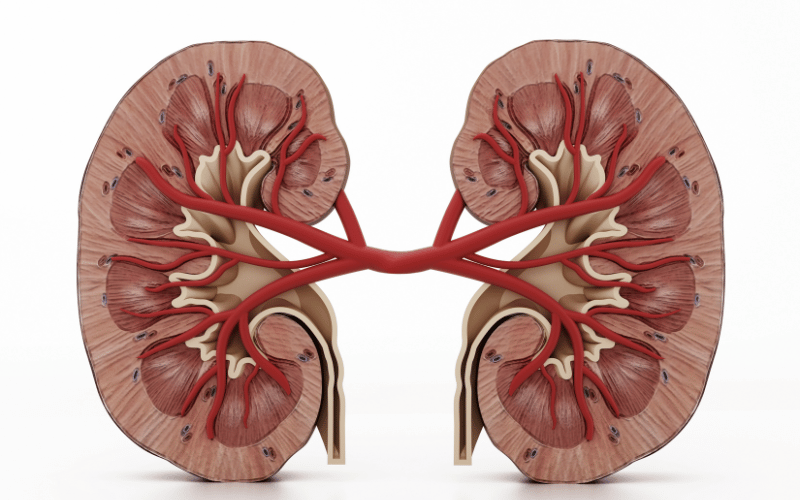Symptom 5: Kidney Dysfunction

Our kidneys, two bean-shaped organs, might be small in size, but their role is monumental. They filter our blood, removing waste products and excess fluids, including the by-product urine. Essentially, they’re our body’s natural detox system. When they malfunction due to conditions like cryoglobulinemia vasculitis, the consequences can be severe.
Kidney dysfunction doesn’t announce itself loudly. Often, the initial signs are subtle. Individuals might notice puffiness around the eyes or swelling in the hands, feet, or ankles. This swelling, medically termed edema, results from the kidneys’ inability to eliminate excess fluid. Another early sign? Changes in urine—whether it’s foamy, contains blood, or there’s a change in the frequency of urination.
As kidney dysfunction advances, the symptoms become more pronounced. High blood pressure can develop, and there might be a general feeling of malaise or fatigue. This isn’t the usual tiredness after a hard day’s work but an overwhelming exhaustion. Some might also experience nausea, persistent itching, or even shortness of breath. When kidneys can’t filter toxins efficiently, these waste products accumulate in the body, leading to a host of symptoms.
In the context of cryoglobulinemia vasculitis, the inflammatory process targets various organs, including the kidneys. The inflammation can damage the glomeruli, tiny filtering units in the kidneys. As they become impaired, kidney function diminishes. Over time, if not addressed, this can lead to chronic kidney disease or even end-stage renal disease, requiring interventions like dialysis or transplantation.
The emphasis with kidney dysfunction in cryoglobulinemia vasculitis is on early detection and timely treatment. Regular screenings, including blood and urine tests, can help monitor kidney function. If anomalies are detected, treatments can range from medications to manage inflammation to more intensive interventions. Like with all symptoms of cryoglobulinemia vasculitis, a multidisciplinary approach, encompassing a team of nephrologists, rheumatologists, and other specialists, is often the best route to optimize outcomes. (5)